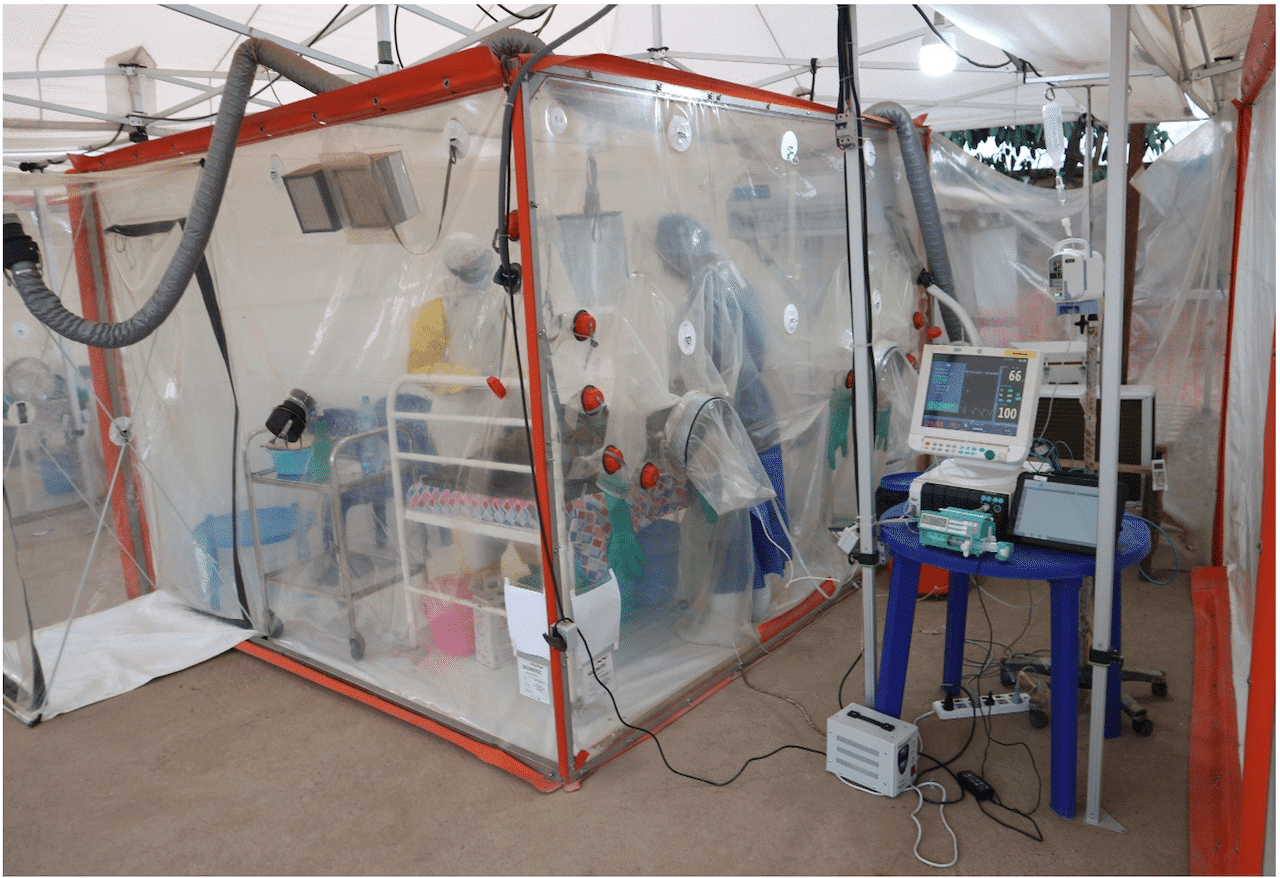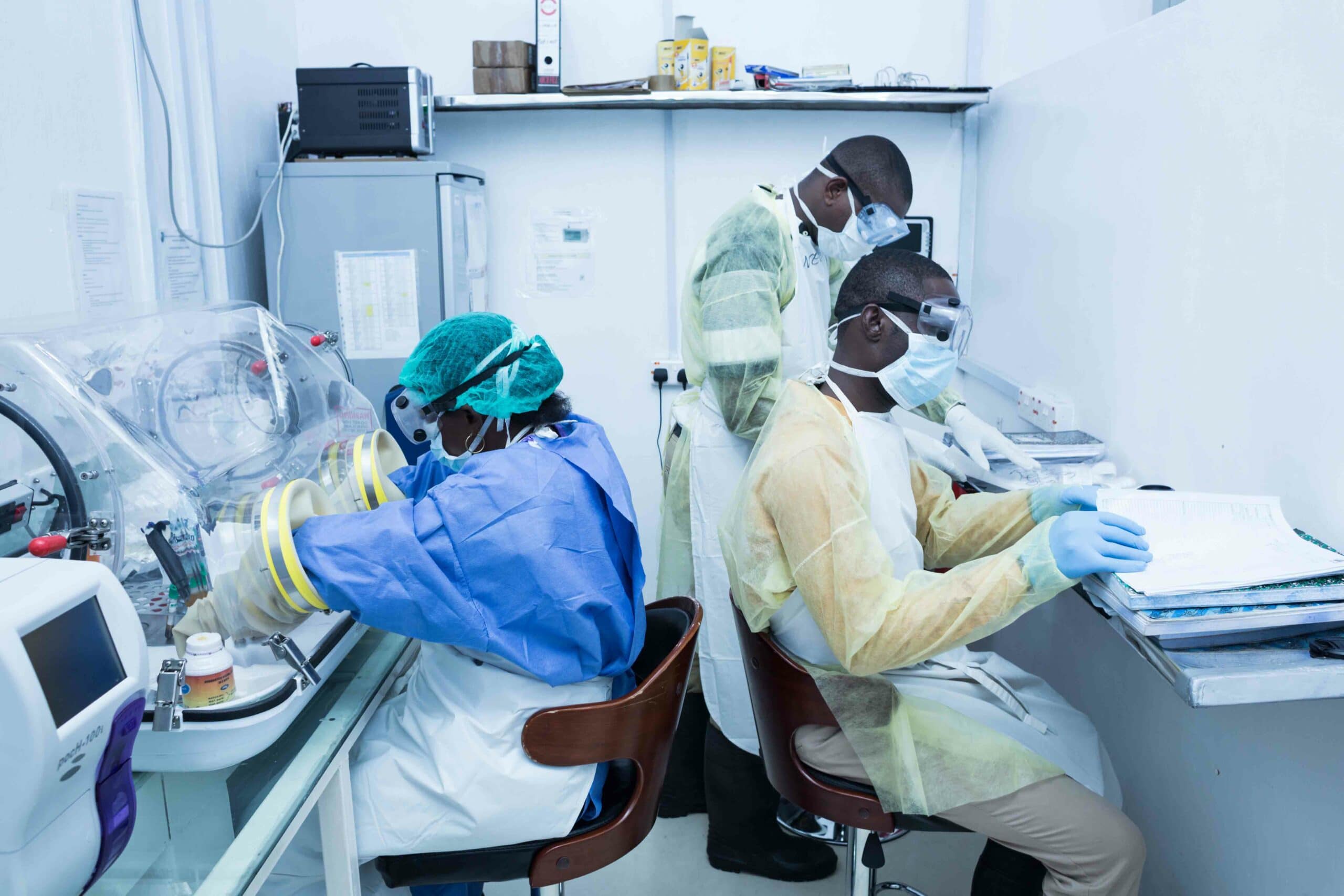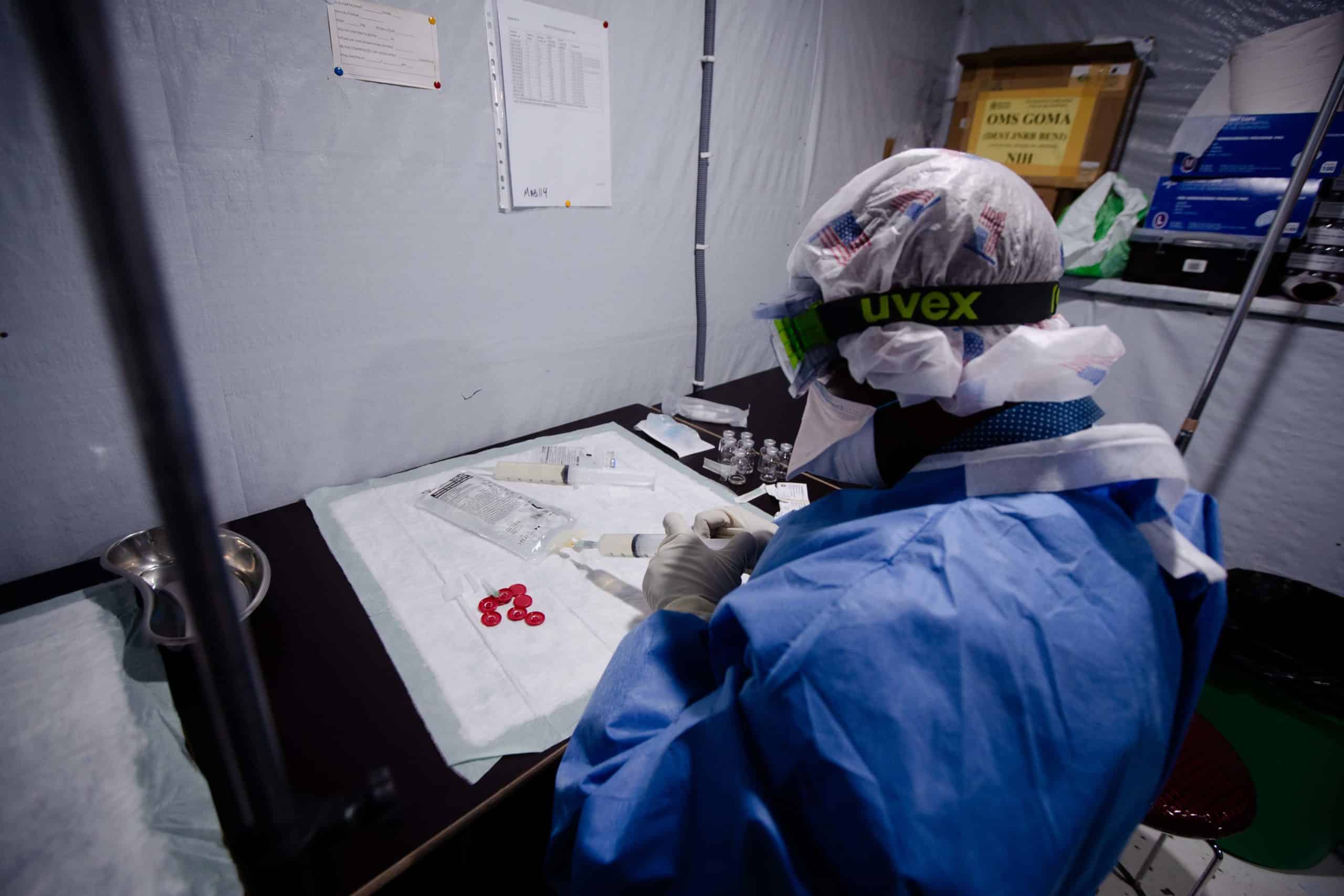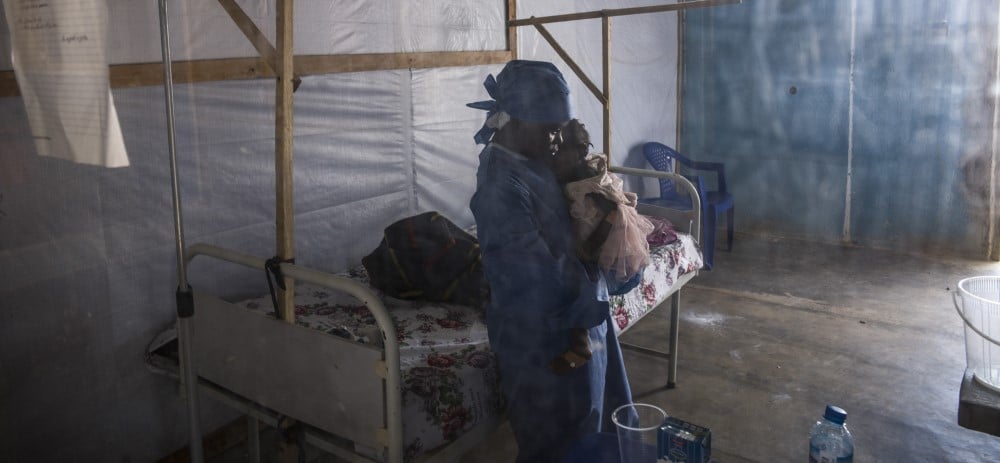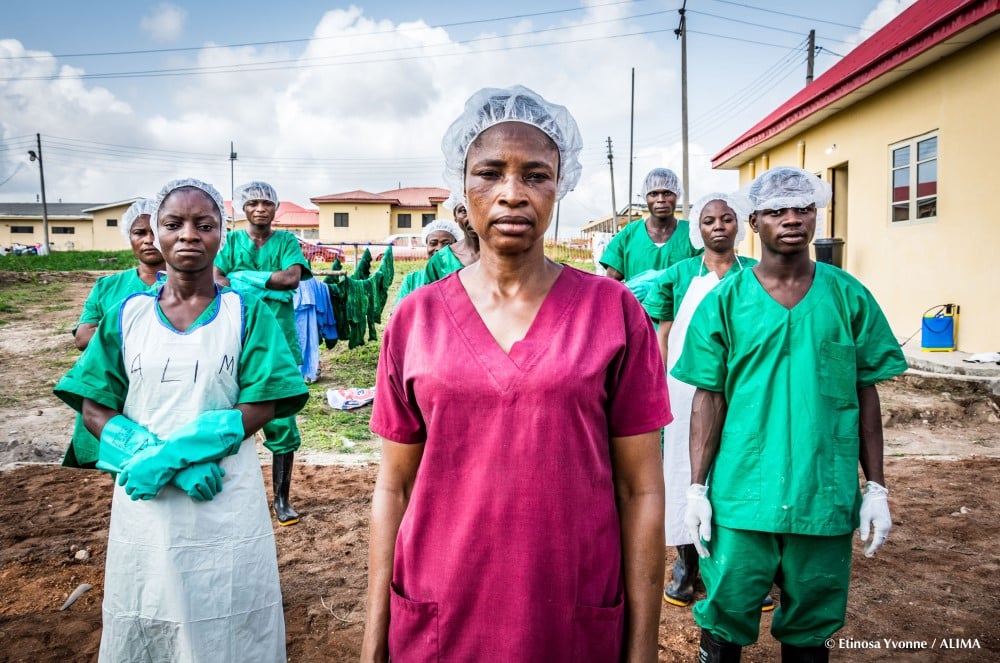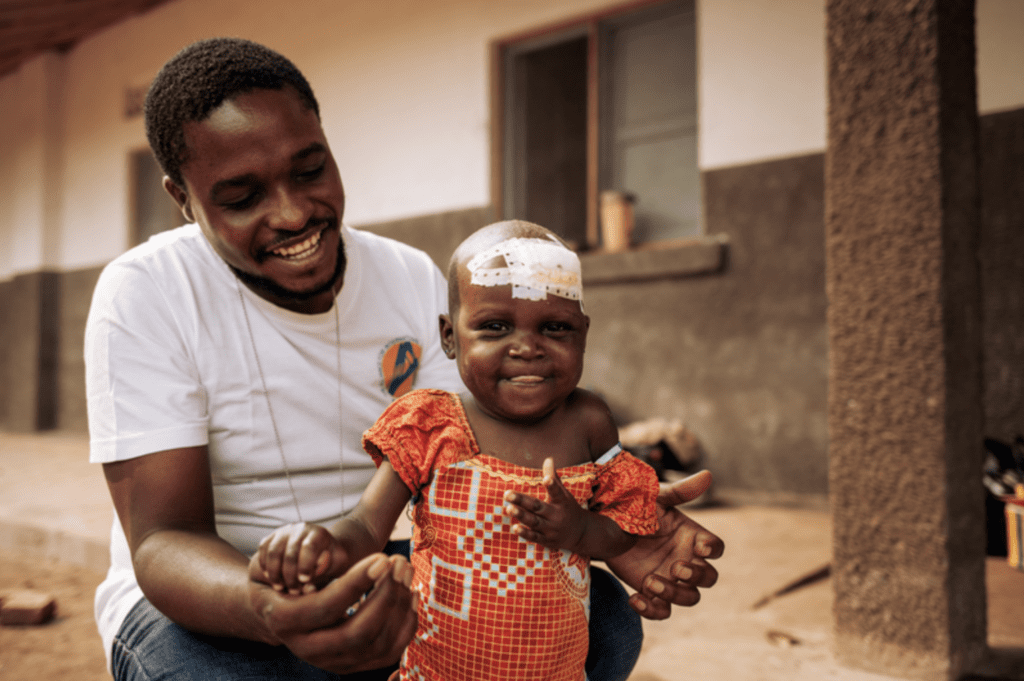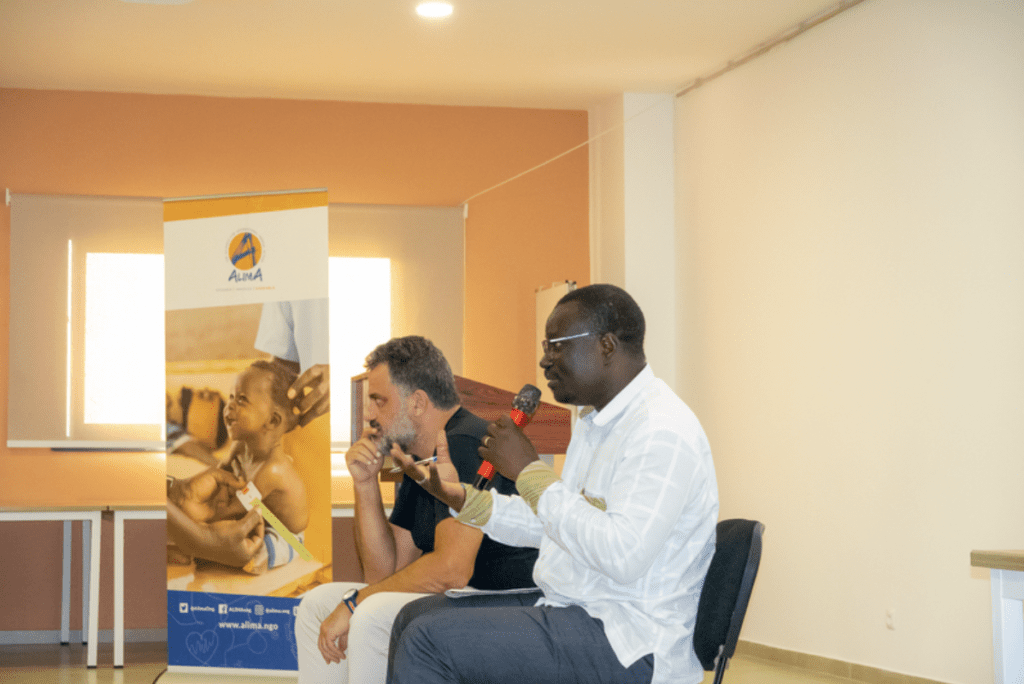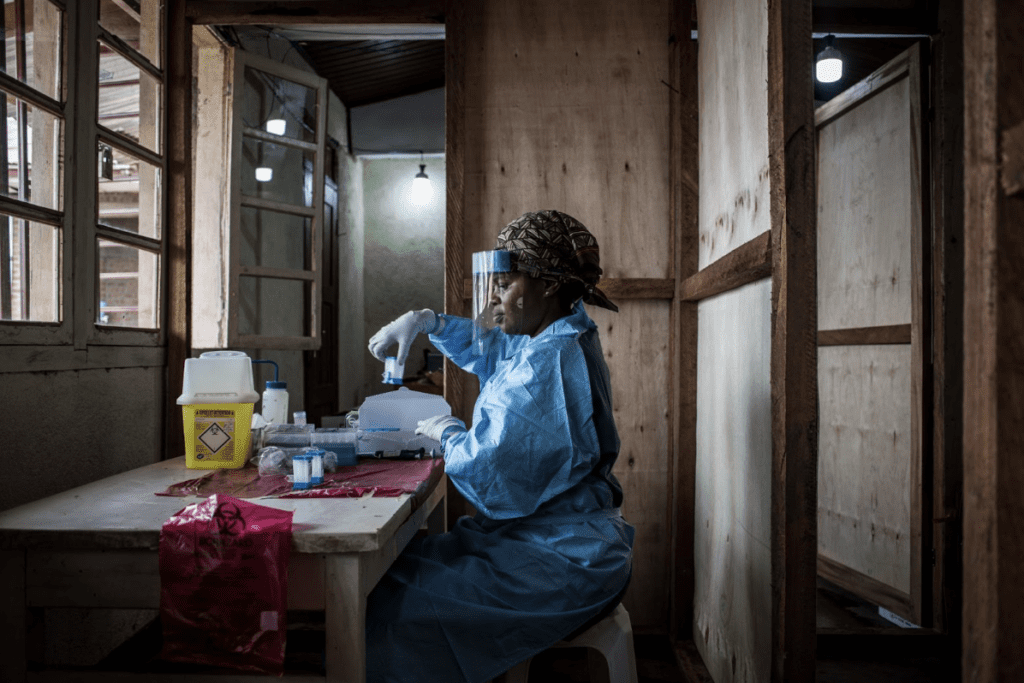Disease outbreaks and emerging diseases
From the little publicized Lassa fever epidemic to high-profile Ebola outbreaks, the fight against emerging diseases has always been a priority for ALIMA.
Context
Worldwide, 14 million people die each year from infection, with about 90% of deaths occurring in developing countries, mainly among children.
New pathologies of infectious diseases emerge regularly. Typically, emerging infectious diseases appear in a population for the first time, or increase suddenly in terms of incidence or geographical distribution.
Many of these diseases are of animal origin and cross the species barrier to reach humans (Ebola, SARS, avian flu, chikungunya, etc.).
Over the past fifty years, the emergence of new infectious agents in human populations has grown at an alarming rate according to the Institut Pasteur (Strategic Plan 2019-2023).
To address these changes and provide ever more appropriate responses to each new outbreak, ALIMA mobilizes to propose innovative solutions. By investing in research and training, the NGO also provides long-term solutions.
14 million
people die each year from infectious diseases.
335
emerging infectious diseases were detected between 1940 and 2004.
70%
of these diseases are zoonoses, i.e. they originate from a virus of animal origin and cross the species barrier to infect humans.
(Source: Institut Pasteur)
Our activities
Research and innovation are at the heart of the ALIMA model. To meet the challenges of humanitarian medicine in the 21st century, ALIMA’s medical teams develop research projects to improve humanitarian medicine and better meet the needs of their patients. Since its creation in 2009, ALIMA has carried out 30 research projects and deployed emergency responses to epidemics in many countries (Ebola virus disease, Lassa fever, measles, monkey pox…).
Emergency response
ALIMA and its local partners ensure the detection and care of the sick at various levels as well as infection prevention. Additional hospital beds, training, vaccines and medical treatments are some of the responses that the NGO provides in the field to support fragile health systems in the face of epidemics. Communication and community awareness-raising are also essential in the successful fight against epidemics. In addition, a good surveillance system will be set up quickly to detect cases and monitor their contacts.
Research
In the context of the response to emerging infectious diseases, ALIMA conducts research projects with its partners, particularly on little-studied diseases, in order to improve patients care. Most of ALIMA’s research projects are conducted within the framework of CORAL (Clinical and Operational Research Alliance), a joint research platform of ALIMA, PACCI (Franco-Ivorian research program) and Inserm U1219. CORAL and ALIMA have world-renowned expertise, particularly in research on viral hemorrhagic fevers.
Innovation
To face some of the challenges in the field, it is essential to provide innovative responses adapted to the context. This is what ALIMA has done in the Democratic Republic of the Congo, for example, where its teams have developed a Biosecure Emergency Care Unit for Epidemics (CUBE). The CUBE is a self-contained, easily transportable care unit for highly infectious diseases, which has revolutionized patient care.
Training
To strengthen the capacities of local health workers, ALIMA organizes training sessions as part of its response to outbreaks. In the countries where it works, health workers such as nurses, doctors, midwives and logisticians specializing in water and sanitation, receive training to strengthen their capacities in the context of epidemics.
